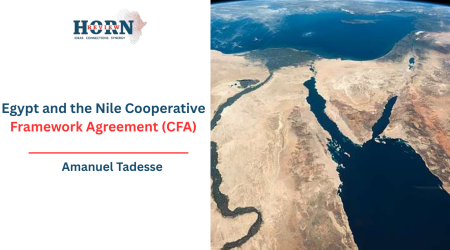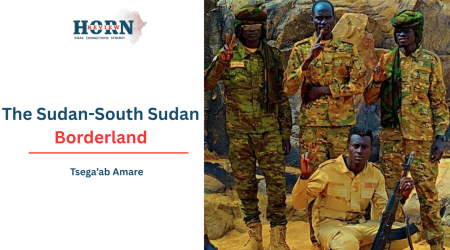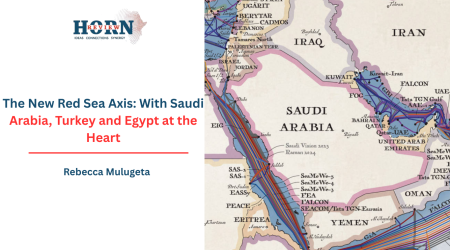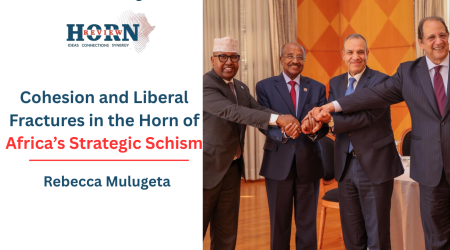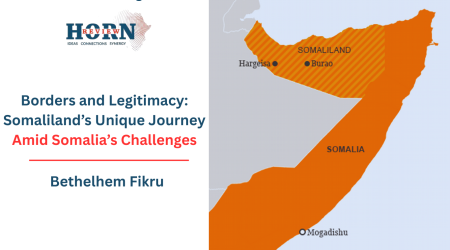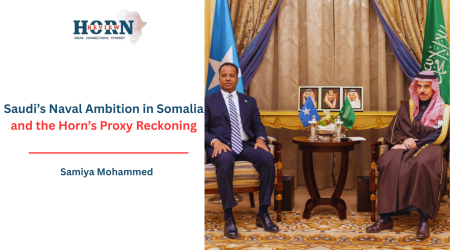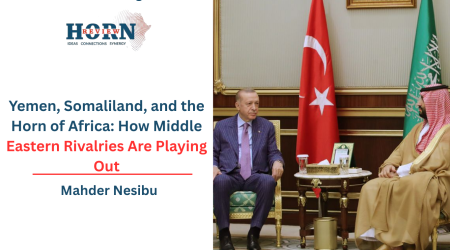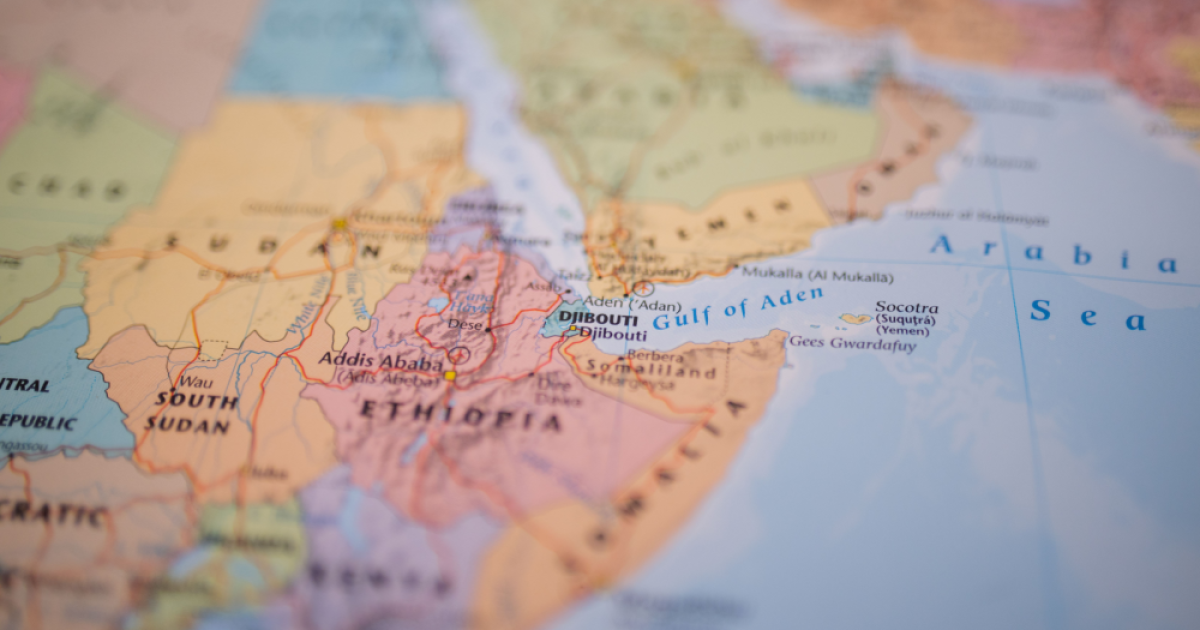
8
Jul
From Ivory Tower to Peace Hub: Weaponizing Higher Education for Regional Stability in the Horn of Africa
The Academic Awakening for Regional Stability
In the shifting sands of diplomacy and security in the Horn of Africa, there is a long-overlooked power that remains vastly underutilized i.e. our universities. Addis Ababa University, a symbol of intellectual prestige in the region, has all the potential to transcend its traditional academic role and become a proactive agent of regional peace and integration.
This is not a romantic idea, it’s a necessary evolution. The Horn of Africa is at a critical crossroad. With conflict, mistrust and fragmented development agendas persisting across borders, we need to rethink how diplomacy is practiced and who participates in it. Institutions of higher learning must no longer be passive observers of regional turbulence. Instead, they should become strategic tools of influence, dialogue and soft power.
Academia as a Strategic Weapon
To speak of “weaponizing academia” may sound provocative, perhaps even unsettling. But in a region like the Horn of Africa where conventional approaches to peace have often failed or fallen short it is precisely this kind of provocative rethinking that is needed. Here, weaponization does not refer to militarization or violence. It refers instead to transforming higher education into a deliberate, structured force for peace, resilience and integration.
Addis Ababa University, the oldest and most reputable higher institution in Ethiopia, holds an untapped strategic capacity. It has the intellectual capital, institutional memory and regional recognition to influence not only national policy, but also cross-border narratives, attitudes and developmental agendas. Unfortunately, this potential has not been intentionally harnessed. The institution remains academically vibrant but politically and diplomatically dormant.
What if AAU were to recalibrate its purpose just slightly to respond to the demands of regional peacebuilding and statecraft? This would mean elevating the university beyond its teaching and research functions into a soft power tool of foreign policy, a knowledge center that actively contributes to Ethiopia’s and the region’s diplomatic toolbox.
Imagine AAU initiating policy labs that bring together academics and diplomats from across the region to develop practical solutions to shared conflicts whether it is water scarcity, border demarcation or youth radicalization. Imagine academic forums that serve as neutral dialogue platforms when formal diplomatic channels are frozen or strained. Academia offers the kind of safe intellectual space where disagreements can be debated without the immediate pressures of political posturing.
Moreover, universities hold the ability to change minds and that in itself is a form of power. The ideas shaped in classrooms, the ideologies debated in student unions and the intercultural bonds formed in dormitories often outlive political regimes. These experiences mold leaders, civil servants, journalists and future negotiators. Thus, if strategically guided, universities like AAU could serve as breeding grounds for a regional elite committed to cooperation rather than conflict.
This is not merely about academic exchange programs or bilateral MOUs. It is about embedding peace and integration into the very DNA of academic institutions. That means reshaping curricula to include comparative politics of the Horn, designing degrees focused on peace and regional diplomacy and mobilizing students for cross-border research projects that investigate real issues affecting communities in Ethiopia, Eritrea, Somalia, Kenya and South Sudan.
Some might argue this is idealistic. But isn’t idealism what universities are for? They are, after all, the birthplaces of social transformation and innovation. It is time Addis Ababa University reclaims its role not just as a hub of knowledge but as a strategic player in securing peace and unity in the Horn of Africa.
Where the integration does begins?
While regional integration has long been a political dream, its true foundation is shared understanding and universities are ideal places to cultivate it. Addis Ababa University can initiate dual-degree programs with universities in neighboring countries, host joint conferences on border issues and sponsor research on cross-border trade, migration and ethnic reconciliation. Even language and cultural studies programs could play a role in defusing nationalist sentiment and building empathy across nations. Hence, the integration begins in the classroom.
Furthermore, embedding peace and conflict studies, regional development policy and diplomatic simulation courses into curricula while partnering with the African Union and IGAD would prepare a new generation of East African leaders equipped with both knowledge and a sense of regional belonging.
The Case for Institutional Diplomacy
In a region long dominated by military alliances, border disputes and fragile peace agreements; it is time we asked ourselves a deeper question: What if our most powerful diplomatic tools aren’t found in ministries or military barracks, but in lecture halls and libraries?
Institutional (Educational) diplomacy is not a theoretical luxury; it is an urgent necessity for the Horn of Africa. This form of diplomacy, often subtle and long-term in its impact, leverages the exchange of knowledge, academic collaboration and intellectual dialogue as tools to build bridges between nations. While political diplomacy seeks treaties and ceasefires, educational diplomacy nurtures understanding, trust and the slow but steady construction of a shared future.
Addis Ababa University, with its legacy and reach, is perfectly positioned to lead such a shift. Its halls are filled not only with Ethiopian students but increasingly with youth from across East Africa future lawyers, scientists, economists and public servants. Each one is a potential peace ambassador, a living embodiment of regional integration. By consciously fostering these relationships through structured programs, joint research and regional academic conferences the university could become a silent but powerful player in shaping the collective destiny of the region.
Let us not forget that conflict often arises from ignorance; ignorance of each other’s history, fears, aspirations and struggles. Universities are unique in their ability to dismantle this ignorance by encouraging critical thinking, cultural empathy and evidence-based discourse. Educational diplomacy thrives on this kind of environment. It does not aim for quick victories; it aims for long-term psychological and ideological alignment across borders.
Addis Ababa University could, for instance, establish a Center for Regional Integration Studies that works closely with institutions in Djibouti, Sudan, Somalia and Kenya. This center could facilitate real-time policy dialogues, offer scholarships for conflict-affected youth or create fellowships that require students to spend time in neighboring countries. The ripple effect of such efforts is immense. Over time, they can create a generation of leaders who are regionally minded, deeply informed and emotionally invested in the idea of a peaceful and united Horn.
Furthermore, Institutional diplomacy helps humanize foreign policy. When nations engage primarily through state-to-state negotiations, diplomacy becomes impersonal, transactional and often elitist. But when students, researchers and faculty interact across borders, diplomacy becomes a lived experience, it becomes personal. These connections build what political agreements alone often fail to achieve: mutual respect, tolerance and grassroots cooperation.
Some may view this as soft, even naive. But in a region where hard power has repeatedly failed to guarantee lasting peace, soft power must no longer be underestimated. Institutional diplomacy may not yield headlines, but it builds history. And history shows us that sustainable peace is built in minds long before it is written in treaties.
It is time for Addis Ababa University and others like it, to claim their rightful place as architects of regional peace. The classroom must become a corridor of diplomacy and the university once dismissed as an ivory tower must rise as a pillar of regional strategy.
A Call to Action
The time for abstract debate is over. The Horn of Africa is not just in need of ideas; it is in need of bold and practical action. The region cannot afford to keep its most powerful intellectual institutions on the sidelines while instability festers across its borders. Addis Ababa University, and universities like it, must now rise not merely as academic institutions, but as peace actors, regional conveners and agents of transformative diplomacy.
We must begin to treat education not just as a tool for individual advancement, but as a strategic instrument of regional cooperation and soft power. The classroom must no longer be isolated from the realities of the region’s conflicts, displacements and economic fragmentation. It must become a space where cross-border understanding is fostered and where the seeds of long-term peace are sown.
This call is not to governments alone. It is to university leaders, scholars, policymakers and young people who believe in the power of knowledge to shape futures. We must challenge the outdated assumption that diplomacy is the sole domain of foreign ministries. In today’s world, diplomacy happens in lecture halls, research labs, student dormitories and university-hosted dialogues. It happens when a Kenyan student collaborates with an Ethiopian peer on water-sharing solutions or when a Somali scholar publishes research on cultural reconciliation through regional education.
But this future will not build itself. It requires intentional strategy, investment and courage. Universities must establish centers for peace and regional studies, launch pan-African scholarship programs and integrate curricula that teach negotiation, conflict resolution and cross-border development. Governments and development partners must support these efforts not as charity, but as a smart investment in long-term peace and stability.
Addis Ababa University has the history, the influence and the credibility to lead this movement. It must now embrace a larger mission to weaponize knowledge not to divide, but to unite. To serve not only Ethiopia, but the entire region. To become not just a national asset, but a continental force for diplomacy and peace.
By Kidus Tesfaye,Researcher,Horn Review

